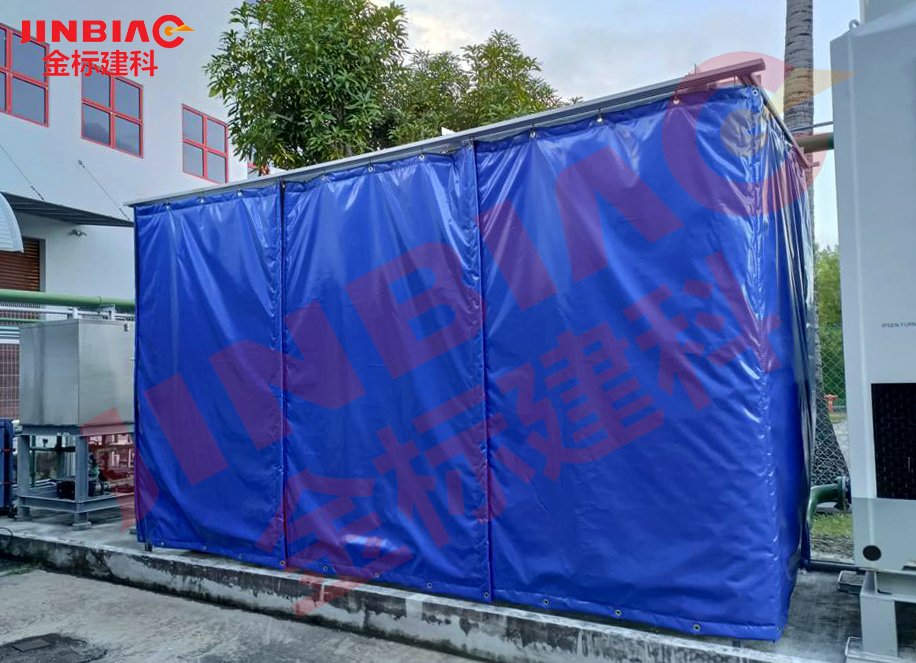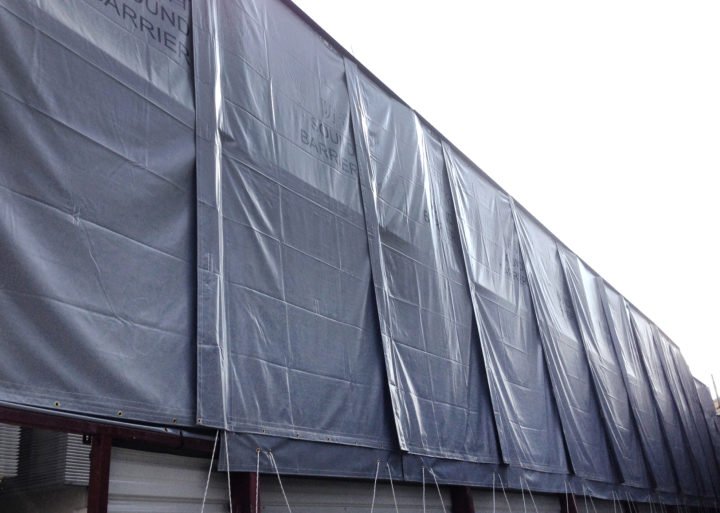
Sound barrier sheets are an indispensable element in soundproofing solutions, offering respite from a noisy environment and ensuring tranquillity where it’s needed most. Whether you’re a construction professional aiming to enhance a building’s acoustic performance, an acoustic engineer fine-tuning noise control elements, or a homeowner looking to reduce household disturbances, evaluating the quality and effectiveness of sound barrier sheets is paramount.
To guide you through this critical process, here are the essential steps to ensure the sound barrier sheet you choose meets your acoustic needs and standards.
1. Understand Acoustic Properties
Before choosing a sound barrier sheet, it’s essential to have a grasp of critical acoustic properties. Two key metrics to consider are Transmission Loss Ratings (TL) and Sound Absorption Coefficients (NRC).
Transmission Loss Ratings (TL)
Transmission Loss is a measure of the sheet’s ability to reduce the sound energy transmission across it. The higher the TL rating, typically measured in decibels at various frequencies, the more effective the barrier at blocking sound.
Sound Absorption Coefficients (NRC)
Sound Absorption Coefficients (NRC) refer to the material’s ability to reduce the reflected sound within an environment. Materials with a higher NRC value absorb more sound and are effective in reducing echo and noise.
2. Material Quality Check
The material’s intrinsic properties play a significant role in how well it performs as a sound barrier.
Density and Thickness
High-density materials and thicker sheets are generally more effective at blocking sound. Look for materials with higher mass, as this means there’s more material for sound to travel through, resulting in better noise reduction.
Durability and Maintenance
Consider the durability of the material, especially in high-traffic or industrial settings where there may be regular wear and tear. Additionally, ease of maintenance should not be overlooked, as maintaining the sound barrier’s integrity is crucial for long-term effectiveness.
3. Installation Considerations
Even the highest-quality sound barrier sheet can be rendered ineffective if not properly installed.
Proper Sealing Techniques
Inadequate sealing can lead to sound leaks and compromise the overall barrier’s effectiveness. Ensure that proper sealing techniques, such as using acoustical caulk or tape, are employed during installation to prevent sound from seeping through gaps.
Structural Compatibility
Assess the compatibility of the sound barrier sheet with the building’s structure. Sheets that are easy to fit into existing spaces, or those that can be installed with minimal impact, are beneficial to ensure an efficient and effective installation process.
4. Performance Testing
Field testing and simulations are indispensable in verifying the actual performance of the sound barrier.
Field Testing Procedures
Conduct on-site noise level measurements before and after the installation of the sound barrier sheet to quantify its true impact. Procedures like the ASTM International’s E90 standard provide guidelines for such tests.
Acoustic Simulation Software
Utilise acoustic simulation software to predict how different materials and configurations will affect the acoustic environment. This can be particularly useful for larger projects where physical testing may be challenging.
5. Compliance with Standards
The sound barrier sheet must meet industry and regulatory standards for maximum effectiveness.
Regulations and Certifications
Familiarise yourself with local and international regulations that pertain to soundproofing materials. Look for certifications from organisations like the International Code Council (ICC) or the American National Standards Institute (ANSI).
Industry Best Practices
Staying abreast of industry standards and best practices will help in assessing the conformity of the sound barrier sheet. These standards are continuously evolving to meet the demands of modern acoustic environments.
6. User Reviews and Feedback
Learning from the experiences of others can provide valuable insights into the usability and effectiveness of a sound barrier sheet.
Testimonials from Professionals
Seek out reviews and testimonials from construction professionals and acoustic experts who have experience with the specific materials you’re evaluating. Their firsthand accounts can help highlight the practical advantages and potential shortcomings.
Homeowner Satisfaction
For sound barriers used in residential applications, feedback from homeowners can be enlightening. Look for user reviews and case studies to see how well the sound barrier has performed in real-life settings.
7. Cost-Effectiveness Analysis
Sound barrier sheets can vary significantly in cost, so it’s important to assess their value in relation to performance and longevity.
Long-term Savings vs. Initial Investment
While higher-quality materials may entail a larger initial investment, they could offer more substantial long-term savings through improved energy efficiency and reduced maintenance costs.
Value for Money Comparison
Consider the overall value the sound barrier sheet offers in terms of noise reduction for the cost. A higher-priced product may justify its cost by achieving markedly better performance than a cheaper alternative.
Conclusion
Choosing the right sound barrier sheet requires careful consideration of acoustic properties, material quality, installation considerations, performance testing, compliance with standards, user reviews and feedback, and cost-effectiveness. Following these essential steps and thoroughly evaluating each aspect, you can confidently select a sound barrier sheet that meets your needs and delivers the desired acoustic results.
Remember to regularly evaluate the effectiveness of the sound barrier and make necessary adjustments to maintain optimal performance. With the right approach, a well-designed and properly installed sound barrier can significantly improve the acoustic environment of any space.
Always strive for continuous improvement and never compromise on quality when it comes to choosing a sound barrier sheet.
Hebei Jinbiao is a leading company in Noise Barrier products and Fencing products in Singapore. We guarantee to provide you with the most high-quality Sound Barrier and Fencing products along with our dedicated assistance. Do not hesitate to contact us. We are looking forward to helping you solve your noise issues, safety issues and protecting you from noise pollution as well as ensuring your safety.

